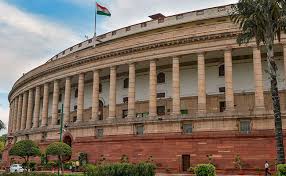New Delhi: The Rajya Sabha Thursday unanimously passed the Scheduled Castes and Scheduled Tribes (Prevention of Atrocities) Amendment Bill, 2018, which seeks to overturn a Supreme Court order that struck down the provision for immediate arrest of the accused booked under the Act.
Since the Lok Sabha has already passed the Bill, it is set to become law following the President’s assent. Replying to the discussion on the Bill, Social Justice Minister Thaawar Chand Gehlot said that the Narendra Modi government was committed to the welfare of the Dalits and the weaker sections and stressed that it had not brought the Bill “under any pressure”.
The Bill provides that an Investigating Officer will not require the approval of any authority for the arrest of the accused booked under the SC/ST Act. Further, it provides that a preliminary inquiry will not be required for the registration of an FIR against those accused under the Act.
On March 20, the Supreme Court ruled that to arrest persons accused of committing an offence under the said Act, approval of the concerned Senior Superintendent of Police will be required. Further, a Deputy Superintendent of Police may conduct a preliminary inquiry to find out whether prima facie a case is made out under the Act.
The Bill says that persons accused of committing an offence under the proposed Act cannot apply for anticipatory bail. It seeks to clarify that this provision will apply despite any judgment or orders of a court that provide otherwise.
Provision of bail added in Triple Talaq Bill
New Delhi: The government Thursday approved certain safeguards in the Triple Talaq Bill, including the addition of a provision of bail for the accused before trial. The measure aimed to allay fears that the law on triple talaq that imposes jail term of up to three years on the husband could be misused. Law Minister Ravi Shankar Prasad said the Union Cabinet has approved three amendments to the ‘Muslim Women Protection of Rights on Marriage Bill’. While the proposed law will remain “non-bailable”, the accused can approach a magistrate even before trial to seek bail. The magistrate would ensure that bail is granted only after the husband agrees to grant compensation as provided in the Bill. The magistrate will decide the quantum of compensation, the Bill says.
